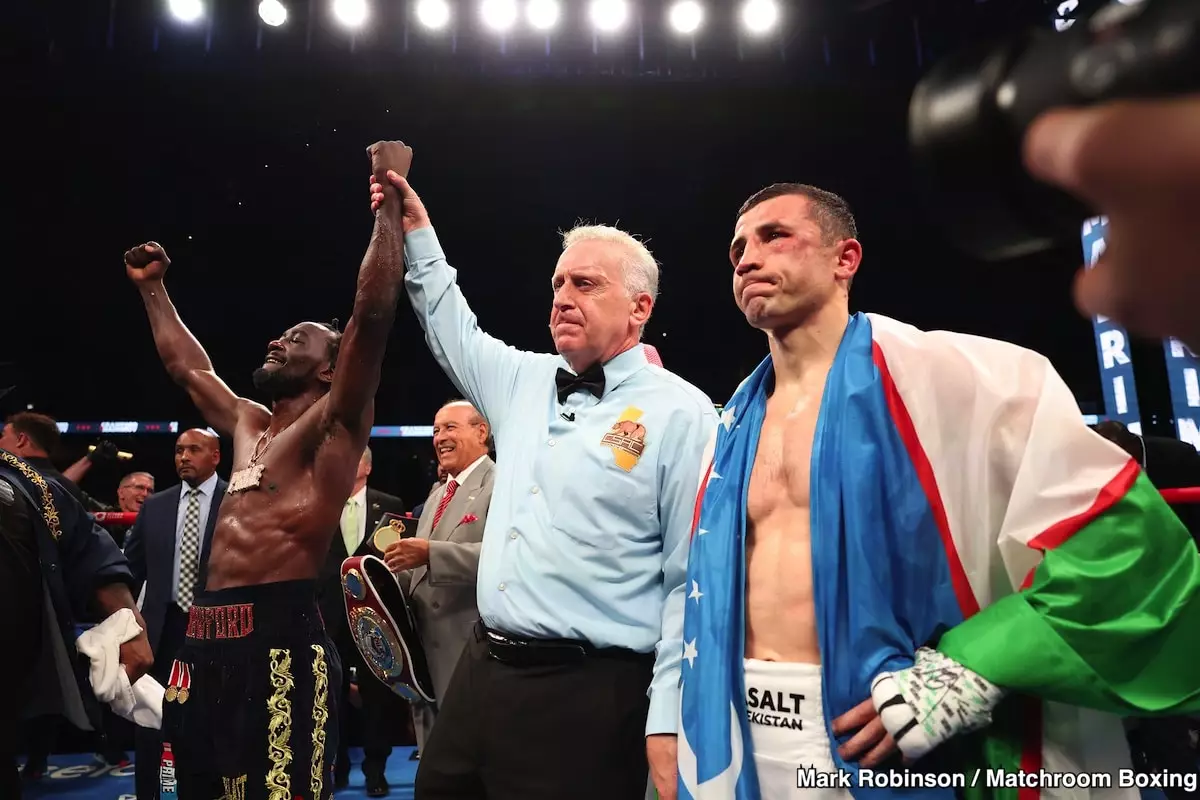Terence Crawford, a name that resonates within the boxing community, has become a paradox in the sport. While his record boasts an impressive 41 victories and 31 knockouts, it is increasingly shadowed by a cloud of doubt and criticism. As Crawford recently took to social media to express his frustration about the skepticism surrounding his career after 17 years in professional boxing, a pressing question arises: Why is a fighter of his caliber still subjected to such scrutiny? This article delves into the complexities of his legacy, analyzing the reasons behind the skepticism and suggesting that the answers may lie in his choices and marketability as a fighter.
Crawford’s claim of being constantly doubted signifies a tension in the realm of expectation versus reality in boxing. It’s true that he has maintained an undefeated record; however, his opponents often lack the quality and competitiveness that excite fans. What many critics highlight is his reluctance to engage in high-stakes, evenly matched bouts. When fights are announced, fans tend to respond with indifference, perhaps wondering who will be the next “tomato can” he faces. This apathetic attitude can be traced directly back to the fighter’s choice of opponents and his strategic positioning in the ring.
In a sport that thrives on the narrative of overcoming adversity and proving oneself against worthy adversaries, Crawford’s trajectory raises eyebrows. While it is common in sports for champions to seek fights that offer a favorable outcome, Crawford’s tendency to avoid true challengers amplifies the skepticism. Some boxing enthusiasts and analysts argue that his reluctance to enter what they refer to as “50-50 fights” reflects not only on his ambition but also on his desire for self-preservation.
Crawford’s apparent focus on securing a lucrative fight against boxing icon Canelo Alvarez epitomizes his career’s more controversial aspects. Critics assert that this pursuit showcases a desire for wealth over legacy. After moving up in weight to the junior middleweight division, Crawford has exhibited an alarming lack of activity. Following a narrow decision victory over Israil Madrimov, rather than challenge the elite fighters in his new weight class, he has remained unusually quiet.
This silence speaks volumes, suggesting an underlying uncertainty that may deter both him and fans from considering his ambitions seriously. If Crawford genuinely wishes to cement his status among the elite in boxing, he must confront significant challenges rather than simply bide time while waiting for a massive payday. The boxing community is right to question whether a fighter who avoids risks can genuinely claim greatness.
Fans have frequently noted that Crawford’s opposition, particularly at lower weight classes, has consisted largely of B-level fighters. His most acclaimed victory came against Errol Spence, a fighter who was far from his prime after suffering a devastating car accident. Comparisons arise when considering his contemporaries, many of whom are engaged in tougher bouts that enhance their legacies. More importantly, they actively pursue high-stakes matches that showcase their skills against elite competition.
While Crawford remains a skilled technician in the ring, the question becomes one of intent: is he truly seeking to prove himself, or is he playing a calculated game, avoiding risks that could tarnish his spotless record? The notion that Crawford is lacking in ambition becomes hard to ignore when observing how he has navigated his career. The excitement of a unification bout against fighters like Bakhram Murtazaliev or Sebastian Fundora could elevate his reputation; instead, his lack of engagement with such opponents has left many fans disillusioned.
Terence Crawford’s journey has been one of remarkable talent marred by inactivity and questionable fight choices. The disbelief of fans serves as a reminder that success in boxing is not solely measured by wins or losses but also by the narrative a fighter creates through their choices. For him to regain the respect that comes with being a knockout artist, Crawford must reignite his career by stepping out of his comfort zone and testing himself against formidable opponents. Until then, the doubters will continue to watch from the sidelines, questioning the merit of his achievements in the ring.


Leave a Reply